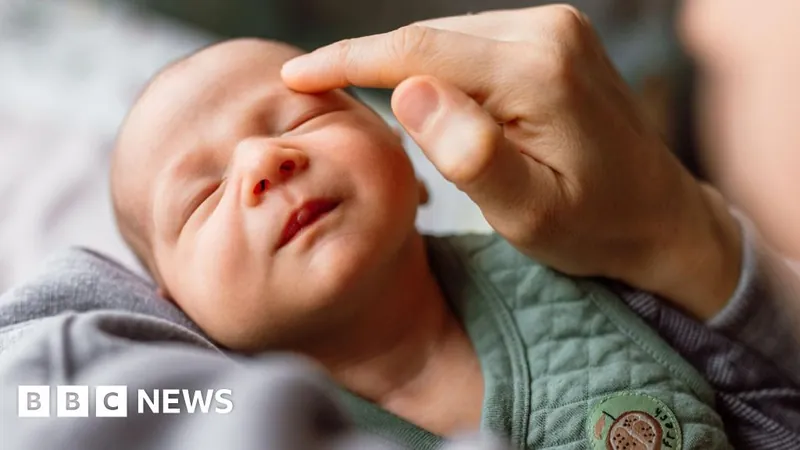
Unlocking the Power of Our First Bacteria: A Lifesaver for Newborns?
2025-06-05
Author: Mei
The Incredible Role of Our First Bacteria
In a groundbreaking discovery, UK scientists have unveiled that the initial bacteria we encounter immediately after birth may play a critical role in preventing dangerous infections. This miraculous finding could reshape how we approach newborn health, potentially saving lives.
Astonishing Findings on Lung Infections
Recent research from University College London and the Sanger Institute shows that a specific type of beneficial bacteria, Bifidobacterium longum, could reduce the risk of young children needing hospital treatment for lung infections by a staggering 50%. Researchers tracked over 1,000 newborns in their first weeks of life, correlating their microbial makeup with hospital admissions over the following two years.
From Sterile to Microbial World
When babies are born, they start off sterile. However, within hours, their bodies become populated with various microbes, forming what scientists call the microbiome. This early microbial exposure is crucial for developing a robust immune system.
A Closer Look at Bifidobacterium Longum
The researchers specifically highlighted that only 4% of infants harboring Bifidobacterium longum were hospitalized for lung infections, contrasting sharply with those with different initial bacteria, who faced up to three times the hospitalization risk.
The Million-Dollar Question
While the main culprit behind many viral respiratory infections in children is the Respiratory Syncytial Virus (RSV), how B. longum mitigates this risk remains under investigation. According to Prof. Nigel Field, the bacteria digest breast milk, fostering an interplay with the immune system that could enhance its response to infections.
The Importance of Delivery Method
Interestingly, B. longum was predominantly found in babies born vaginally, raising important considerations about the delivery method's impact on microbiome formation. However, the researchers caution against practices like vaginal seeding, where parents apply vaginal swabs to their newborns, affirming that this may not yield the desired beneficial effects.
Future of Microbial Therapies
Looking ahead, the team is hopeful about developing therapies—like probiotic yogurts—that could help establish healthy microbiomes in infants, thereby enhancing their immunity from the very outset. Prof. Louise Kenny emphasized the need for a nuanced understanding, acknowledging that while caesarean births can be lifesaving, further research is essential for holistic insights.

 Brasil (PT)
Brasil (PT)
 Canada (EN)
Canada (EN)
 Chile (ES)
Chile (ES)
 Česko (CS)
Česko (CS)
 대한민국 (KO)
대한민국 (KO)
 España (ES)
España (ES)
 France (FR)
France (FR)
 Hong Kong (EN)
Hong Kong (EN)
 Italia (IT)
Italia (IT)
 日本 (JA)
日本 (JA)
 Magyarország (HU)
Magyarország (HU)
 Norge (NO)
Norge (NO)
 Polska (PL)
Polska (PL)
 Schweiz (DE)
Schweiz (DE)
 Singapore (EN)
Singapore (EN)
 Sverige (SV)
Sverige (SV)
 Suomi (FI)
Suomi (FI)
 Türkiye (TR)
Türkiye (TR)
 الإمارات العربية المتحدة (AR)
الإمارات العربية المتحدة (AR)